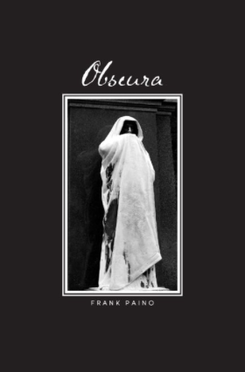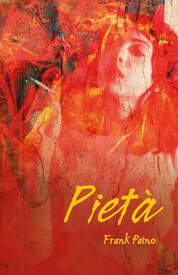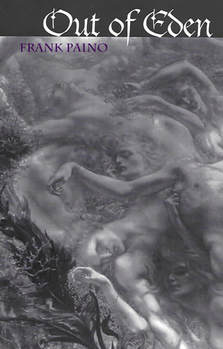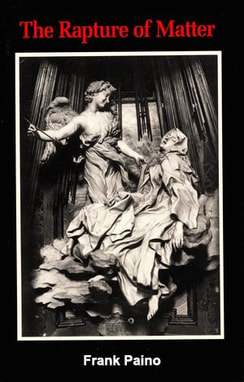PIETAAvailable now from Jacar Press!
Praise for Pieta' : "It is with immense pleasure and deep admiration that I choose 'Pieta' for the Jacar Press chapbook prize. 'Pieta' stands out as a profound collection that delves into the depths of human experience, eliciting emotions that resonate on a universal scale. With poems of careful craft and a brushstroke of clear-cut language 'Pieta' paints vibrant and haunting landscapes of pain, and the human spirit's resolute capacity to endure. Here is a poet who is exceptional and adept at the use of religious and historical symbolism. The poems skillfully weave these elements into a contemporary narrative, resulting in a rich and multi-layered reading experience. The juxtaposition of religious iconography with the harsh realities of the present day adds depth and complexity to the poems, inviting readers to contemplate the intersections of faith, suffering, and resilience." - Saddiq Dzukogi, Author of Your Crib, My Qibla |
OBSCURAABOUT THE BOOK
In his long-anticipated third poetry collection, Frank Paino sheds his singular light on the most obscure corners of history and human nature, assembling a hagiography of unorthodox saints. Paino’s poems teach us to look deeply at the unsettling realities from which we instinctually look away—and they show us the rich rewards of beauty and wisdom we can gain by doing so. Buy Here: amazon Orison Books |

Orison Books
paper / 84 pp. / $16.00
ISBN: 978-1-949039-07-8
Distributed to the trade by Itasca Books
1-800-901-3480 / [email protected]
Publication Date: May 5, 2020
|
PRAISE FOR OBSCURA
“This work, with a fetish-like attention to detail, enters the chambers of history we often avoid, stepping into skins both human and beast. . . . (Paino’s) fascinations sift the wreckage out of grief, desperate to find a way we can all rightly live with so much loss. Because, reader, be warned: within these pages is no typical lyric meditation on how our bodies are destroyed or what becomes of them after their end. No, this is a book unlike anything else being written today. You won’t be likely to forget what you encounter here. As [Paino] describes, contemplating a photograph of a suicide victim who fell to her death looking exquisitely beautiful, once you’ve seen it, you’ll be ‘powerless to turn away.’” —Nickole Brown, from the Foreword
“In Frank Paino’s long-awaited new book, Obscura, the blessed and the profane both belie a state of bewilderment. The rapturous lyricism and the searing interiority zero in on what is difficult to behold. (. . .) In impeccably musical language the poems in Obscura will consume you in their ‘ravenous fire.'” —Oliver de la Paz
“Frank Paino’s lavishly dark Obscura questions our species’ seemingly endless ability to impose harm and destroy others in the name of faith, progress, or pleasure. In poems that unsettle—in the severely sensual way that Dickinson does, in the nauseatingly precise way that Plath does—Paino makes the historical timely, illuminating, like a brush tipped in toxic radium, our deepest interiors. I have been waiting a long time for this book, and will be reading it for years to come.” —Kathy Fagan
“This work, with a fetish-like attention to detail, enters the chambers of history we often avoid, stepping into skins both human and beast. . . . (Paino’s) fascinations sift the wreckage out of grief, desperate to find a way we can all rightly live with so much loss. Because, reader, be warned: within these pages is no typical lyric meditation on how our bodies are destroyed or what becomes of them after their end. No, this is a book unlike anything else being written today. You won’t be likely to forget what you encounter here. As [Paino] describes, contemplating a photograph of a suicide victim who fell to her death looking exquisitely beautiful, once you’ve seen it, you’ll be ‘powerless to turn away.’” —Nickole Brown, from the Foreword
“In Frank Paino’s long-awaited new book, Obscura, the blessed and the profane both belie a state of bewilderment. The rapturous lyricism and the searing interiority zero in on what is difficult to behold. (. . .) In impeccably musical language the poems in Obscura will consume you in their ‘ravenous fire.'” —Oliver de la Paz
“Frank Paino’s lavishly dark Obscura questions our species’ seemingly endless ability to impose harm and destroy others in the name of faith, progress, or pleasure. In poems that unsettle—in the severely sensual way that Dickinson does, in the nauseatingly precise way that Plath does—Paino makes the historical timely, illuminating, like a brush tipped in toxic radium, our deepest interiors. I have been waiting a long time for this book, and will be reading it for years to come.” —Kathy Fagan
OUT OF EDEN
|
"Seductive, edgy, gothic and sublime, these poems haunt the body as much as the soul. Paino's Out of Eden quickens with the articulation of votive flames. The shadows they cast become, in his skilled hands, earthly pietas of a new transfiguring gospel which declares, 'We/will never turn back toward any paradise where there is no fire and we have nothing, nothing to lose.' Paino makes us feel how marvelously everything's at stake in a world where our desire to know is both tragic and redemptive." —Beckian Fritz Goldberg
"Whether transporting the reader back to an early nineteenth-century autopsy or jack-hammering the most harrowing anti-occasional poem I've ever encountered, Paino possesses a riveting narrative gift and a hell-bent unprecedented, gattling-gun ear. Out of Eden is elegiac, erotic, and brilliantly imagined. No matter what corner of human history he illuminates, it is transformed it into an almost unbearable beauty." —Roger Weingarten |
THE RAPTURE OF MATTER
|
"Lavish, passionate, heretical, the poems in Paino's debut collection read like illuminated leaves in a postmodern book of hours. These fearless poems go where they must with a visionary fervor, guiding the reader through the darkest passages of experience and reminding us of the best, most redemptive qualities of the human spirit." —Lynda Hull
“The rapture in this superb first book is initially in the engagement with and attention to detail, a sense of care for the art that then allows Paino’ s elegiac vision to achieve an elevating rapture that overcomes the deaths, the losses, the betrayals he faces. It is a vision based on a wondrous music, a mature voice that struggles passionately for dignity in the here and now. ‘Some things are worth risking everything for,’ he says in one poem, and the whole book itself is the proof of that statement. Finishing it, I think of the great Rilke, how he wrote to the young poet: ‘no experience has been too slight, and the least incident unfolds like a destiny . . . guided by an infinitely tender hand." —Richard Jackson “It’s almost impossible, reading these poems, to believe they are the ingredients of a first book. So wise, so full of experience and concrete details, they hook us, as few early poems do, into sitting up half the night, rereading. There’s no doubt in my mind that Paino is already one of America’s best poets.” —Paula Rankin "The Rapture of Matter is one of the most impassioned, vigorous, and accomplished first books to be published in a good long while. By turns fervent, elegiac, and dizzying in their momentum, the poems cast a powerful spell. At a time when most poets seek to simply mimic the blandest aspects of the period style, Paino writes poems as if his life depended upon them." —David Wojahn |



